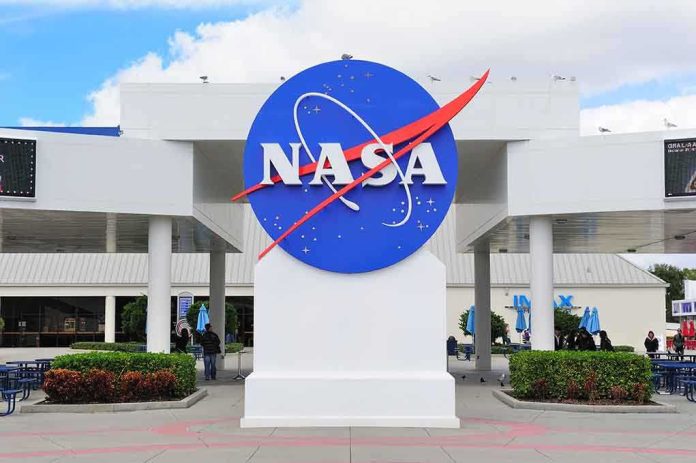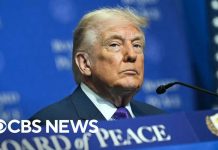
NASA has implemented a sweeping ban on all Chinese nationals from participating in its space programs, even those with valid U.S. visas, marking the most aggressive move yet in America’s fight to protect its technological edge in the new space race.
Story Highlights
- NASA banned all Chinese nationals from facilities and programs on September 11, 2025, regardless of visa status
- The action follows escalating U.S.-China competition over lunar dominance and nuclear power plant missions
- Hundreds of Chinese scientists were immediately locked out of IT systems and barred from meetings
- The ban represents a significant expansion beyond the 2011 Wolf Amendment restrictions
NASA Takes Decisive Action Against Chinese Infiltration
NASA Acting Administrator Sean Duffy announced the comprehensive ban on September 11, 2025, describing it as necessary action in what he calls a “second space race” with China. The policy immediately barred Chinese citizens from accessing NASA facilities, materials, and networks, regardless of their legal status in the United States. NASA press secretary Bethany Stevens confirmed the ban extends to both physical and digital access, effectively shuttering all Chinese participation in American space programs.
NASA bans Chinese nationals from working on programs at facilities https://t.co/RtcyCqPP4P via @upi
— Frances Auger (Me / Myself / and I) (@fern_60) September 12, 2025
Escalating Lunar Competition Drives Security Concerns
The ban comes as both nations race to establish lunar dominance, with the U.S. Artemis program targeting a 2027 moon landing while China aims for 2030. Recent proposals by both countries to build nuclear power plants on the moon have intensified concerns about territorial claims and strategic control. U.S. lawmakers, including Senator Ted Cruz, publicly endorsed the NASA decision, emphasizing the national security implications of allowing Chinese access to sensitive space technologies during this critical competition phase.
Immediate Impact on Scientific Community
The lockout began when Chinese workers were barred from NASA IT systems and in-person meetings before the official announcement. Hundreds of Chinese scientists and engineers now face exclusion from ongoing collaborative projects and research initiatives they had been contributing to under previous arrangements. This represents a dramatic shift from the 2011 Wolf Amendment, which restricted cooperation but allowed case-by-case exceptions for individual Chinese nationals.
The comprehensive nature of this ban demonstrates the Trump administration’s commitment to protecting American technological superiority from potential espionage and intellectual property theft. While critics worry about losing scientific talent, supporters argue this decisive action safeguards critical national security interests as China aggressively pursues space dominance that could undermine American leadership and defense capabilities.
Long-Term Strategic Implications
This ban signals a fundamental shift toward technological decoupling in sensitive industries, reinforcing broader efforts to prevent Chinese access to advanced American capabilities. The policy may trigger reciprocal restrictions from China, potentially escalating the space rivalry and polarizing international scientific collaboration. However, the move aligns with conservative principles of putting America first and protecting national interests against foreign competitors who seek to exploit American openness for strategic advantage.
Sources:
NASA bans Chinese nationals from working on programs at facilities
NASA blocks Chinese scientists from programs
NASA blocks Chinese citizens from participating in its projects









